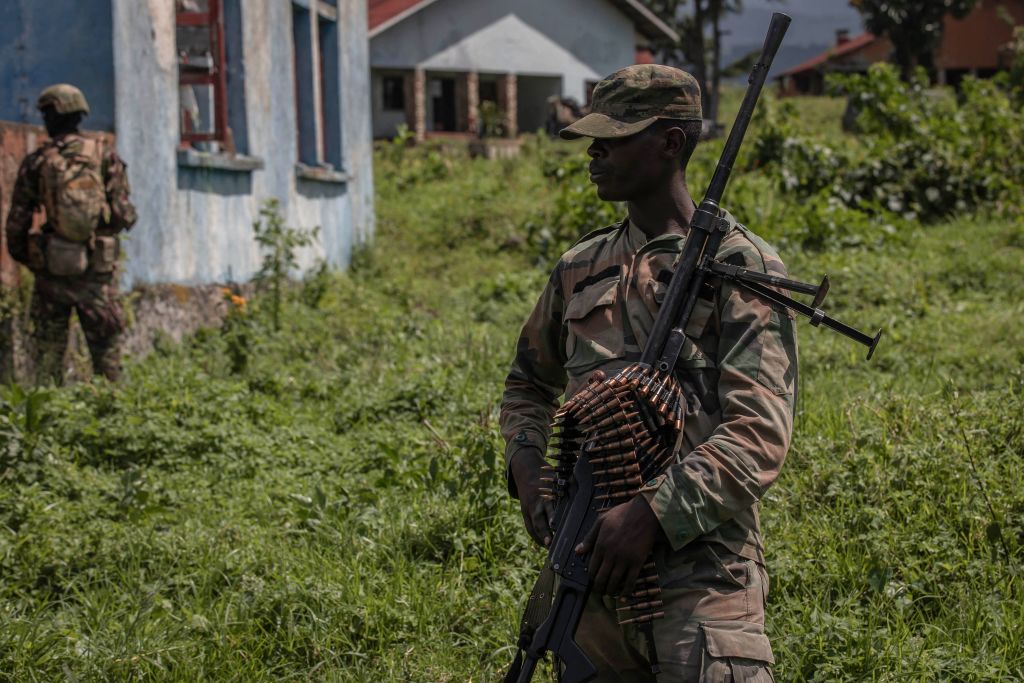ADF STAFF
For a brief time earlier this year, the war-weary people of the eastern Democratic Republic of the Congo (DRC) had reason to be optimistic about a long-promised peace process.
Beginning in December 2022, the East African Community Regional Force (EACRF) oversaw the process of M23 rebels handing over bases to the peacekeeping force.
But a tenuous cease-fire has not held as fighting resumed in North Kivu province in September, according to civil society spokesperson Telesphore Mithondeke.
“For the past week, new waves of M23 rebels have burst into Masisi territory via neighboring Rutshuru. M23 men are returning from accelerated training to prepare assaults on FARDC positions,” he said in a September 20 press release, according to Kenyan newspaper The East African.
What was supposed to be a gradual withdrawal of the militant insurgents has not occurred, according to numerous first-hand accounts.
“Not only have they not left the positions they conquered, but they are continuing to massacre the civilian population, and they are refusing pre-cantonment and cantonment,” Congolese President Felix Tshisekedi said in his September 20 address to the United Nations General Assembly.
“They are demanding a dialogue that will never be granted to them.”
The regional M23 rebellion continues to eat away at any prospects for peace in a region caught in the jaws of warfare for decades.
The ethnic Tutsi-led group reemerged in late 2021 after years of dormancy and seized large swaths of North Kivu by force along the DRC-Rwanda border.
Tshisekedi has repeatedly accused Rwanda of supporting M23 with arms and training. An independent United Nations panel of experts has made similar claims.
“This terrorist group, which is a proxy for Rwanda, has not honored any of the commitments entered into by the heads of states of the region in the context of the Luanda and Nairobi processes,” Tshisekedi said.
M23 spokesperson Lawrence Kanyuka said renewed fighting on October 1 was in response to Tshisekedi’s speech.
“The M23 condemned President Tshisekedi’s decision to engage in war after many calls worldwide for a peaceful settlement of the ongoing conflict,” he told Rwandan newspaper The New Times.
Rwandan President Paul Kagame refuted the U.N. findings.
“Most of the things reported by these experts do not correspond to the facts as we know them,” he said in a September 12 interview with Jeune Afrique magazine. “In this report there is little or nothing on the history of the Congo’s problems, on the responsibility of Congolese institutions, on the crimes committed by the FARDC.”
At the U.N. General Assembly meeting, Rwanda reiterated its accusation that FARDC has armed and collaborated with self-defense militias known as Wazalendo, which means “patriots” in Kiswahili.
Mithondeke said M23 rebels attacked the Wazalendo on September 19, when fighting broke out between self-defense forces near the village of Buhumba in North Kivu.
“It lasted all day and caused a number of collateral damages to the population, including mass forced displacement and the looting of private property,” he said.
Kagame said Tshisekedi’s accusations are meant to divert attention from the DRC government’s and FARDC’s culpability in the conflict.
“Why not blame the right people for the situation?” he said. “That is not my responsibility.
“The members of the M23 are Congolese citizens.”

